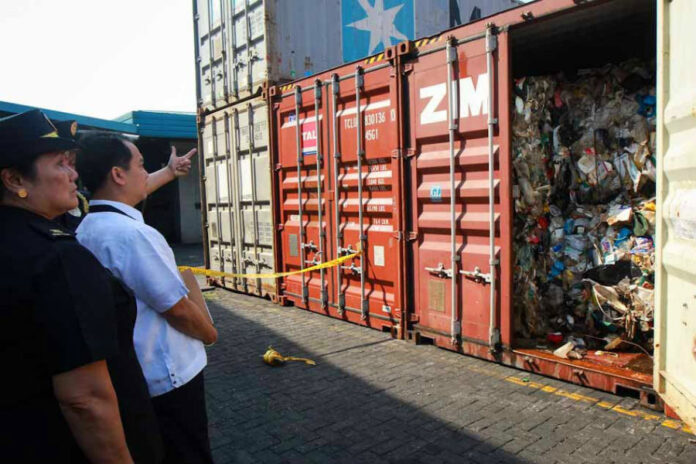‘Canada refused to take responsibility over trash’
The Philippines will just have to wait until Canada agrees to take back heaps of trash illegally shipped to the Asian country nearly 5 years ago, a lawyer and environmental activist said Wednesday.
Unlike South Korea, which immediately agreed to take back around 6,500 tons of garbage illegally shipped to Mindanao last year, Canada refused to take responsibility for the waste it brought to Manila, said Antonio La Viña, former dean of the Ateneo School of Government and also an ex-environment undersecretary.
“Hindi tinanggap ng Canada. ‘Yung Korea tinanggap naman nila. It’s really accepting responsibility. There’s nothing else except that,” he told ABS-CBN News, saying the only move left for the Philippines would be to wait and to continue talking with Canada.
A total of 103 containers of Canadian waste, consisting of household trash, plastic bottles and bags, newspapers, and used adult diapers, arrived in Manila in batches from 2013 to 2014. Trash from at least 26 containers (out of the 103) have already been buried in a Tarlac landfill.
Chronic Plastics Inc., the Valenzuela-based consignee, was accused of violating Republic Act 9003 or the Ecological Solid Waste Management Act and the 1995 Basel Convention on the Transboundary Movement of Hazardous Wastes and Disposal. The garbage was misdeclared as plastic scraps.
The international convention, to which both Canada and the Philippines are signatories, provides that “the exporting country must take back the waste materials if the receiving country refuses to accept them.” But Canadian officials earlier said there was no violation of the Basel Convention as the shipment did not contain hazardous waste.
In 2016, a Manila court ordered the importers to take the waste back to Canada but the garbage heaps continue to rot in the country’s ports nearly 3 years after, leading green group EcoWaste Coalition to question the government’s current efforts.
“What happened to the ruling? How long do we need to wait?” said Aileen Lucero, national coordinator of EcoWaste Coalition, a group that since 2013 has repeatedly urged Canada to take back its waste.
“‘Yung Canada, from 2013 hanggang 2016, may problema dun sa batas nila. Pero 2017, sinabi ni (Canadian Prime Minister Justin) Trudeau na ‘theoretically possible’ to get them back na,” she added, referring to a statement by Canada’s leader in a 2017 regional summit in Manila.
In a press conference on the sidelines of the Association of Southeast Asian Nations Summit in November 2017, Trudeau said he and President Rodrigo Duterte touched on the topic during informal talks.
“We also discussed the garbage issue which has been a long-standing irritant and I committed to him as I am happy to commit to you all now that Canada is very much engaged in finding a solution on that,” he said.
Trudeau said the Canadian government worked around its laws so it can take back the garbage shipment, adding that it had been barred by its rules.
“Canadian legal regulations prevented us from being able to receive the waste back to Canada. We had legal barriers and restrictions that prevented us from taking it back, but that’s done now,” Trudeau said.
There were still questions being discussed, he said at that time, such as “who will pay for it, where the financial responsibility is.”
(P. Quintos, abs-cbn)



